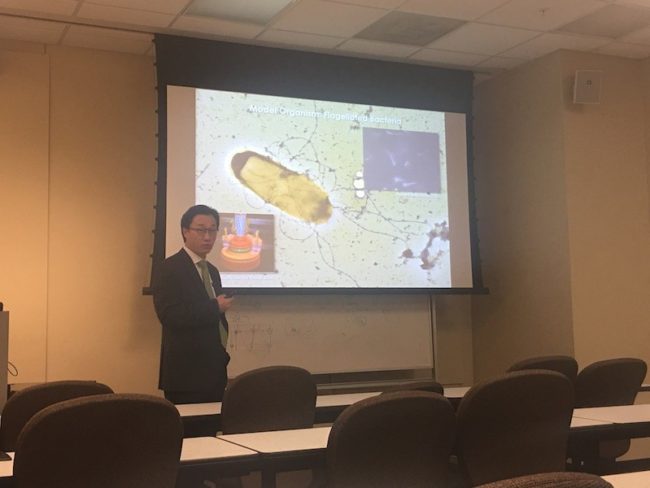
Who would have thought that drilling tiny robots through blocked arteries would become the new technology that would replace doctors from performing difficult tasks?
Professor MinJun Kim said these micro-swimmers would be programmed to unblock arteries, target cancer cells, and localize drug delivery.
“Our arteries are fragile and can easily clog up,” Kim said. “Why not let robots that can be injected into the body help as they pierce through the bloodstreams?”
The Lyle Brown Bag lunch lecture was on Monday, Feb. 20, at noon in Junkins at SMU.
SMU Alumni, staff members, graduate and undergraduate students attended the event, which was open for questions after Kim finished his lecture.
“I am an engineer, so I want to impact students,” Kim said. “This is the perfect example of how engineering can help society all with the influence of science.”
Dr. Kim earned his B.S. in mechanical engineering in Korea and his M.S in mechanical engineering from Texas A&M University. Following his studies, he served as a post-doctoral research fellow at Harvard University.
The lecture was a great source of information for students to learn more about robotics, mathematical modeling and synthetic biology.
“As a student, I attend Dr. Kim’s Brown Bag lectures to develop my understanding of future micro, nano robotic research topics and to support our research group,” SMU student Daehee Kim said.
“Students get to know how research is conducted,” Senior Associate Dean of Engineering Volkan Otugen said. “It is a part of their science.”
Kim spoke for 30 minutes and left the floor open to questions for the remaining half hour.
“With micro robots inside the body, we have no vision so it is hard to control, but we are developing new models every day and coming up with solutions,” Kim said. “The idea is very simple, it will just take time.”
For more information about Brown Bag Lunch lectures at SMU, please visit smu.edu/lyle.








